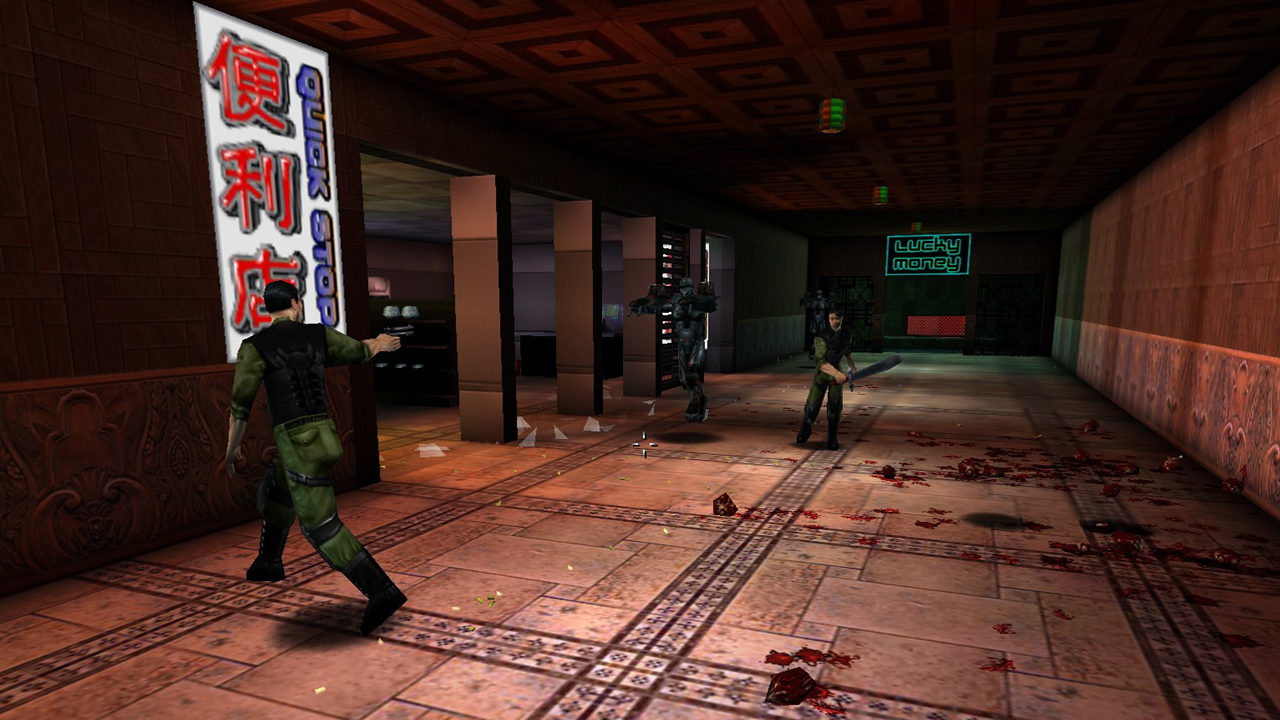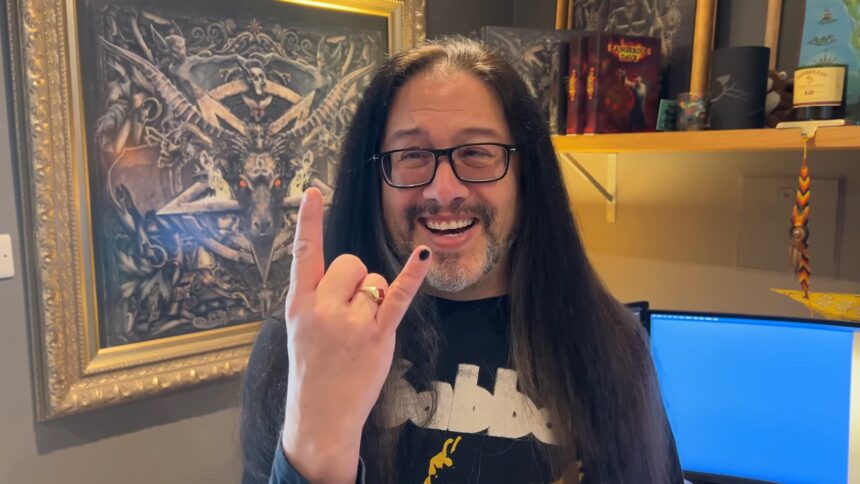PC Gamer recently dispatched Robert Zak to chat with the senior developers behind Deus Ex, in order to mark the 25th anniversary of a true classic. Among the many nuggets are that the initial pitch for the game starred Jake Shooter, supercop, and that the team never really thought that one of the most political games you could imagine was political at all.
The story of Deus Ex’s development is also inextricable from one of the most influential figures in 90s game development: John Romero. Romero and fellow id alumnus Tom Hall had founded Ion Storm in Dallas in 1996, and publisher Eidos had basically given the studio a blank cheque. A lot of this money would go on things like penthouse suites and lavish office facilities, but Romero also had an eye for talent: and in 1997 Looking Glass Austin had just laid off much of the team who made Thief.
“We just sort of hung out [in the Looking Glass office], prototyping things and playing around,” recalls designer Steve Powers. “And then had this surreal moment when John Romero drove down from Dallas in his yellow Humvee with his purple shiny pants and said, ‘I want all of you guys to come with me and make whatever you want!'”
Best gaming setup 2025

Warren Spector had been mulling over the chance to go to Westwood and make a Command & Conquer RPG, but Romero had the offer of a lifetime. “‘Make the game of your dreams. No creative interference. You’ll have the biggest budget you’ve ever had. You’ll have the biggest marketing budget you’ve ever had,'” paraphrases Spector. “Who says no to that?”
Ion Storm Austin benefited from, well, not being in Dallas, which was where the utter chaos of Daikatana’s development was unfolding. With the total freedom to build a dream game, the problem turned out to be managing those ambitions: what could actually be achieved, even when resources were plentiful. Imbuing every space in the game with narrative and meaning, for example, is one of those wonderful ideas that requires a hell of a lot of heavy lifting.
“Everything needs to be dipped in narrative, which means that the more space you make, the more conceptual work you’re making,” says Harvey Smith. “From my perspective, what Deus Ex—and honestly, half the games we’ve worked on—needed all through the project was to cut 20 or 30% of the game.”
Development went well, and next to the maelstrom that was Daikatana Deus Ex was comparatively low-budget and low hassle: but as the finish line came into view the team, almost inevitably, realised the game needed an extra six months or so to truly deliver. This would normally have been a big ask: but Eidos almost hand-waved it through. And this, too, can be credited to John Romero and his winning habit of getting executives too bladdered to check-in on the Austin office.
“We went in ready to fight and argue and lobby for another four to six months’ development time, and they were like, ‘Sure, it’s probably better anyway if you are not in our hair right now,’” recalls Harvey Smith, explaining that the hard-partying culture over at the Dallas studio meant that, when the Eidos suits did visit the states, they’d rarely make it to Austin.
Harvey Smith again: “They would fly over these British guys and they would just get hammered with the Dallas team for three days straight. This happened three or four times over the years where Warren and the team were prepping for the visit from Eidos and they would send a mail on the last day like, ‘Guys, we partied a little too hard in Dallas and we’re not gonna make it this summer.'”
Deus Ex got the extra four to six months after hitting 1.0, and Smith believes this is what moved Deus Ex from a good game to an all-timer: So much so that he’d go on to champion this approach at Arkane (Dishonored received the same treatment). As for John Romero, Daikatana would turn out a disaster and his career would go in another direction: ultimately Ion Storm’s real legacy would prove to be Deus Ex, the game that the hungover suits considered a makeweight.
After making all those promises to Spector, Romero would go on to have no involvement with Deus Ex: and yet without Romero, and one hell of a bar tab, Deus Ex wouldn’t exist. “John lived up to every promise he made that day,” ends Spector.
Read the full article here










